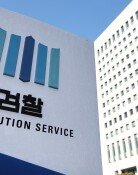Senior Executive Service Available only to Officials, Not Civil Experts
Senior Executive Service Available only to Officials, Not Civil Experts
Posted September. 15, 2004 21:46,
It has been reported that the Senior Executive Service which was introduced in May 1999 has been abused as a means for position sharing among government officials and that the practice is still prevalent even under the current government.
As a result, some have raised their voices over the necessity of introducing measures that help recruit competent civil experts and lower the barriers blocking their access while arguing that in doing so, the practice of personnel management being determined by social networks can be rooted out.
According to data presented by the Civil Service Commission to Rep. Kim He-sun of the Uri Party, a whopping 84 positions set aside for civil experts have been occupied by government officials since this system started.
This accounts for 64.1 percent of 131 occupied positions, which is out of a total of 153 positions open to civilians.
On the other hand, only 47 civil experts were appointed to the positions, which accounts for 35.9 percent. Even worse, 22 positions, or 14.4 percent, are still vacant because of a lack of eligible candidates.
Many of those classified as civil experts, moreover, are civilians only in appearance because some of them either started their careers as government officials and came back after finishing stints with international organizations, or have a history of working as government officials even though they started their careers as civil professionals.
It has also been reported that the more influential the department, the less likely it is to hire civil experts.
The Ministry of Finance and Economy, assigned a total of four positions, filled two with government officials, and left other two vacant. The Foreign Ministry, with a total of eight positions, ended up just filling three within the department and one from other departments. The last four were also left vacant. The Prosecutors Office also left three positions, including the position of director of the Seobu branch of the Seoul District Prosecutors Office, vacant.
The Office for Government Policy Coordination filled all five positions it had available for civil experts by hiring two within the department and three from other departments. The Ministry of Education and Human Resources Development also filled the only two positions with civil experts out of seven which had open to civilians, while the Unification Ministry filled one position within the ministry, two from other departments, and left one vacant.
The reason for the dominant representation of government officials seems to lie in the hesitation of civilians who are afraid of unfair personnel policies that give preference to those who passed the examination.
In response, a Civil Service Commission spokesperson said, Under the Kim Dae-jung government, 80 percent of the positions in question was occupied by government officials. The dominance of government officials has been dwindling.
In order to prevent government officials from abusing the system as a means for promotion and transfer, Rep. Kim plans to present an amendment bill to the National Civil Servant Law during the Assemblys regular session when it opens in September.
Young-Hae Choi yhchoi65@donga.com




![“한동훈, 정치생명 걸고 무소속 출마해 평가받는 것 고려할만”[정치를 부탁해]](https://dimg.donga.com/c/138/175/90/1/wps/NEWS/IMAGE/2026/01/19/133186982.1.jpg)


